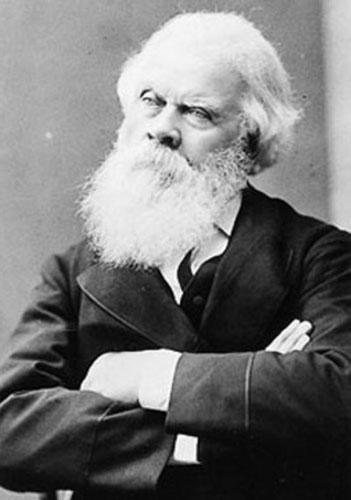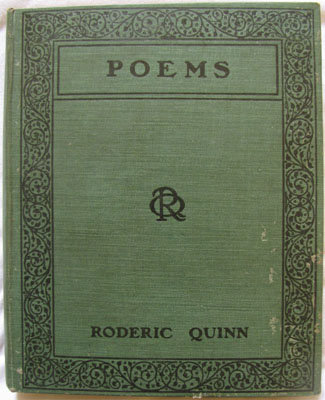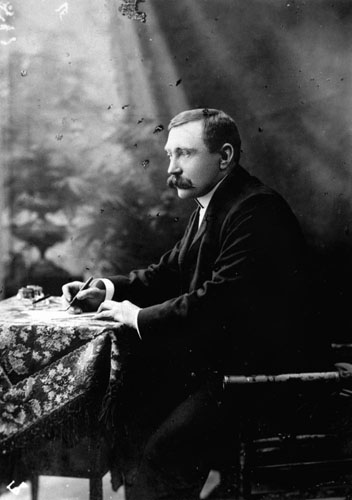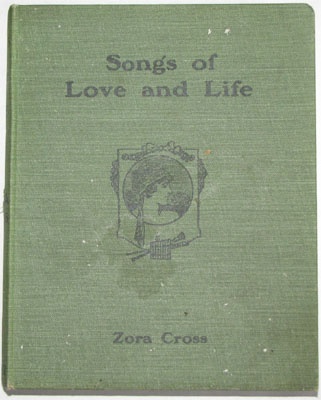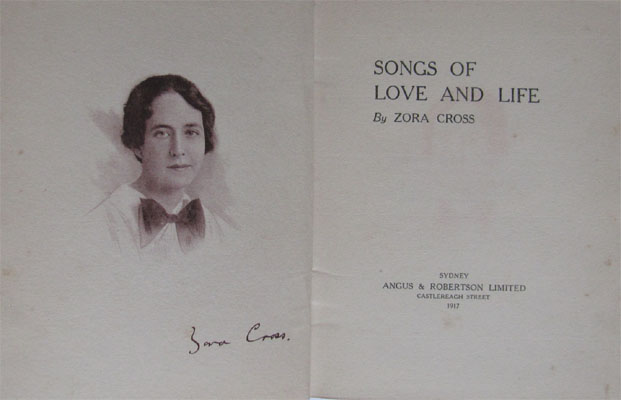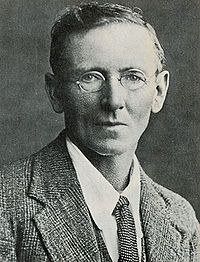The world 'as got me snouted jist a treat;
Crool Forchin's dirty left 'as smote me soul;
An' all them joys o' life I 'eld so sweet
Is up the pole.
Fer, as the poit sez, me 'eart 'as got
The pip wiv yearnin' fer -- I dunno wot.
I'm crook; me name is Mud; I've done me dash;
Me flamin' spirit's got the flamin' 'ump!
I'm longin' to let loose on somethin' rash....
Aw, I'm a chump!
I know it; but this blimed ole Springtime craze
Fair outs me, on these dilly, silly days.
The young green leaves is shootin' on the trees,
The air is like a long, cool swig o' beer,
The bonzer smell o' flow'rs is on the breeze
An 'ere's me, 'ere,
Jist mooching around like some pore, barmy coot,
Of 'ope, an' joy, an' forchin destichoot.
I've lorst me former joy in gettin' shick,
Or 'eadin' browns; I 'aven't got the 'eart
To word a tom; an' square an' all, I'm sick
Of that cheap tart
'Oo chucks 'er carcis at a feller's 'head
An' mauls 'im ... Ar! I wish't that I wus dead!...
Ther's little breezes stirrin' in the leaves,
An sparrers chirpin' 'igh the 'ole day long;
An 'on the air a sad, sweet music breaves
A bonzer song --
A mournful sorter choon thet gits a bloke
Fair in the brisket 'ere, an' makes 'im choke...
What is the matter wiv me? ... I dunno.
I got a sorter yearning 'ere inside,
A dead-crook sorter thing that won't let go
Or be denied --
A feelin' I want to do a break,
An' stoush creation for some woman's sake.
The little birds is chirpin' in the nest,
The parks an' gardings is a bosker sight,
Where smilin' tarts walks up an' down, all dressed
In clobber white.
An', as their snowy forms goes steppin' by,
It seems I'm seekin' something on the sly.
Somethin' or someone -- I don't rightly know;
But, seems to me, I'm kind er lookin' for
A tart I knoo a 'undred years ago,
Or, maybe, more.
Wot's this I've 'eard them call that thing? ... Geewhizz!
Me ideel bit o' skirt! That's wot it is!
Me ideel tart! ... An, bli'me, look at me!
Jist take a squiz at this, an' tell me can
Some square an' honist tom take this to be
'Er own true man?
Aw, Gawd! I'd be as true to 'er, I would --
As straight an' stiddy as ... Ar, wot's the good?
Me, that 'as done me stretch fer stoushin' Johns,
An' spen's me leisure getting on the shick,
An' 'arf me nights down there in Little Lon.,
Wiv Ginger Mick,
Jist 'eading 'em, an' doing in me gilt.
Tough luck! I s'pose it's 'ow a man is built.
It's 'ow Gawd builds a bloke; but don't it 'urt
When 'e gits yearnin's fer this 'igher life,
On these Spring mornin's, watchin' some sweet skirt --
Some fucher wife --
Go sailin' by, an' turnin' on his phiz
The glarssy eye -- fere bein' wot 'e is.
I've watched 'em walkin' in the gardings 'ere --
Cliners from orfices an' shops an' such;
The sorter skirts I dursn't come too near,
Or dare to touch.
An, when I see the kind er looks they carst ...
Gorstooth! Wot is the use o' me, I arst?
Wot wus I slung 'ere for? An' wot's the good
Of yearnin' after any ideel tart?
Ar, if a bloke wus only understood!
'E's got a 'eart:
'E's got a soul inside 'im, poor or rich.
But wot's the use, when 'Eaven's crool'd 'is pitch?
I tells meself some day I'll take a pull
An' look around fer some good, stiddy job,
An' cut the push fer good an' all; I'm full
Of that crook mob!
An', in some Spring the fucher 'olds in store,
I'll cop me prize an' long in vain no more.
The little winds is stirrin' in the trees,
Where little birds is chantin' lovers' lays;
The music of the sorft an' barmy breeze ...
Aw, spare me days!
If this 'ere dilly feelin' doesn't stop
I'll lose me block an' stoush some flamin' cop!
First published in
The Bulletin, 13 March 1913, and then again in the same magazine on 29 January 1980;
and later in
The Songs of a Sentimental Bloke by C. J. Dennis, 1915 [titled changed to "A Spring Song"];
My Country: Australian Poetry and Short Stories, Two Hundred Years edited by Leonie Kramer, 1985;
Selected Works of C. J. Dennis by C. J. Dennis, 1988;
Favourite Poems of C. J. Dennis by C. J. Dennis, 1989; and
The Oxford Book of Australian Love Poems edited by Jennifer Strauss, 1993.
Author reference sites: C.J. Dennis,
Austlit,
Australian Dictionary of Biography,
Australian Poetry LibrarySee
also.
